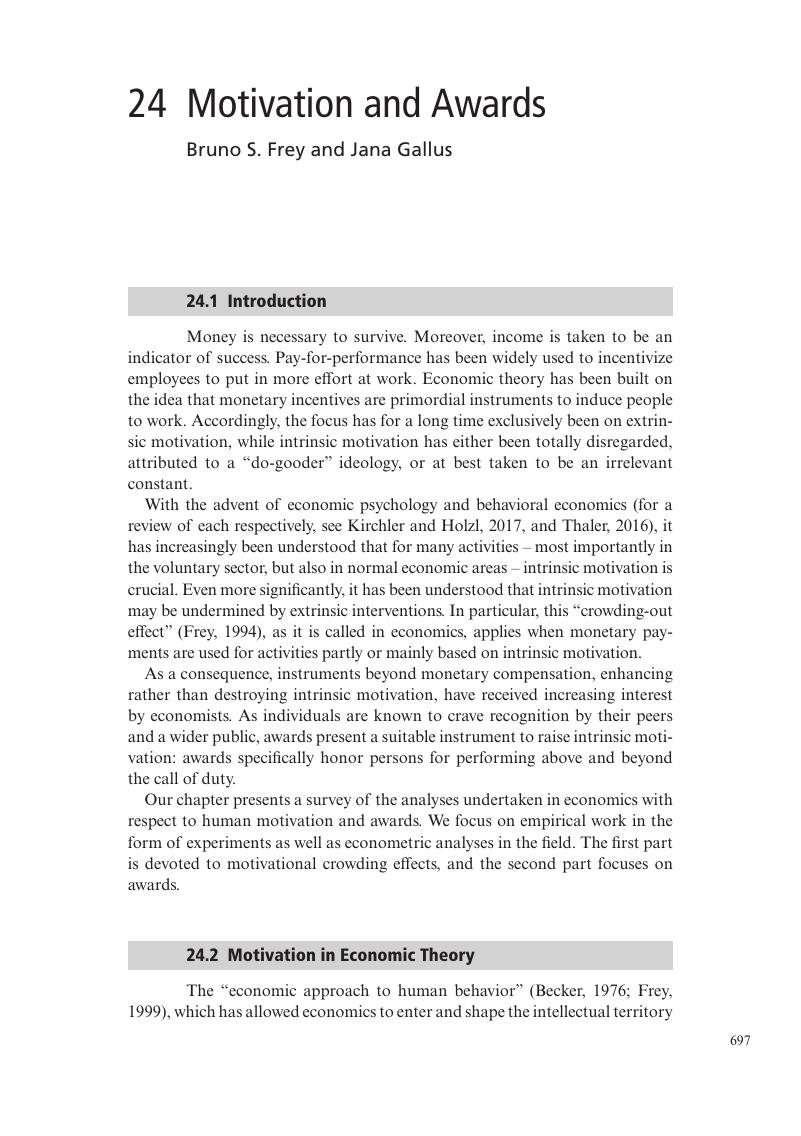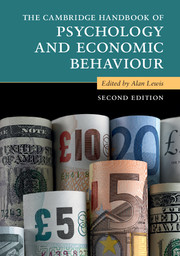Book contents
- The Cambridge Handbook of Psychology and Economic Behaviour
- The Cambridge Handbook of Psychology and Economic Behaviour
- Copyright page
- Dedication
- Contents
- Plates
- Figures
- Tables
- Notes on Contributors
- Introduction
- Part I Theory & Method
- Part II Finance
- Part III Private Sector Consumer Behaviour and the Firm
- Part IV Public Sector Consumer Behaviour
- Part V Environment
- Part VI Biological Perspectives
- Part VII New Horizons
- 24 Motivation and Awards
- 25 Fuzzy-Trace Theory
- 26 Robots, Cyborgs, and Consumption
- 27 End Piece
- Index
- References
24 - Motivation and Awards
from Part VII - New Horizons
Published online by Cambridge University Press: 01 February 2018
- The Cambridge Handbook of Psychology and Economic Behaviour
- The Cambridge Handbook of Psychology and Economic Behaviour
- Copyright page
- Dedication
- Contents
- Plates
- Figures
- Tables
- Notes on Contributors
- Introduction
- Part I Theory & Method
- Part II Finance
- Part III Private Sector Consumer Behaviour and the Firm
- Part IV Public Sector Consumer Behaviour
- Part V Environment
- Part VI Biological Perspectives
- Part VII New Horizons
- 24 Motivation and Awards
- 25 Fuzzy-Trace Theory
- 26 Robots, Cyborgs, and Consumption
- 27 End Piece
- Index
- References
Summary

- Type
- Chapter
- Information
- The Cambridge Handbook of Psychology and Economic Behaviour , pp. 697 - 712Publisher: Cambridge University PressPrint publication year: 2018
References
24.7 References
- 1
- Cited by



